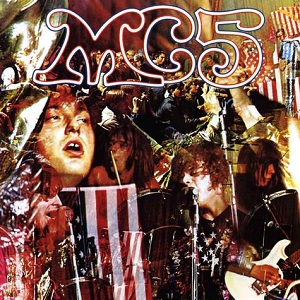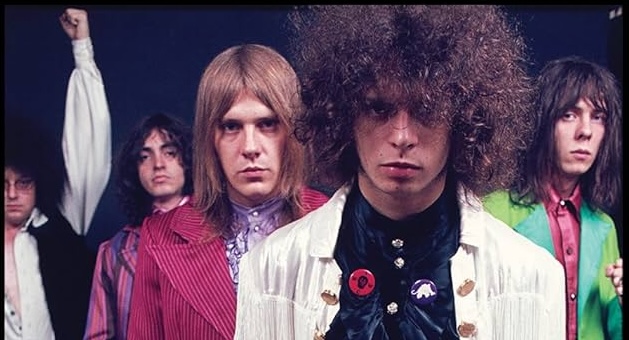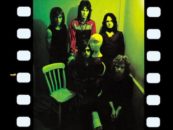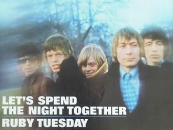Wayne Kramer, MC5 Guitarist, Dead at 75
by Best Classic Bands Staff Wayne Kramer, the guitarist and vocalist who co-founded the influential Detroit rock band The MC5, died yesterday (Feb. 2, 2024). His passing, at age 75, was confirmed by his social media pages. The cause of death was pancreatic cancer at a Los Angeles hospital.
Wayne Kramer, the guitarist and vocalist who co-founded the influential Detroit rock band The MC5, died yesterday (Feb. 2, 2024). His passing, at age 75, was confirmed by his social media pages. The cause of death was pancreatic cancer at a Los Angeles hospital.
“He will be remembered for starting a revolution in music, culture, and kindness,” stated his Facebook page, which added, “If you would like to honor Wayne, donations are appreciated to his nonprofit organization, Jail Guitar Doors.”
Born Wayne Kambes on April 30, 1948, in Detroit, Kramer—along with fellow MC5 members lead vocalist Rob Tyner, guitarist Fred “Sonic” Smith, bassist Michael Davis and drummer Dennis Thompson—prefigured punk-rock with an aggressive, thundering approach to hard rock that eschewed meandering psychedelia and flower-power and went against other prevailing trends of the late ’60s. [Thompson died on May 9, 2024, just three months after Kramer, and only weeks after the MC5 were finally chosen for induction into the Rock & Roll Hall of Fame.]
Controversy confronted the band constantly. Managed by leftist activist John Sinclair, the MC5—for Motor City 5—became aligned with the White Panther Party, a radical political and social organization opposed to racism and capitalism. The group’s debut album for Elektra Records, Kick Out the Jams, recorded live at Detroit’s Grande Ballroom in late 1968 and released in 1969, caused a stir for its in-your-face brand of rock, infused with a sense of abandon borrowed from jazz greats like Sun Ra and Albert Ayler. Its title track, which, in its earliest release, included the phrase “Kick out the jams, motherf**kers” being shouted, caused the record to be banned by most radio stations, and also caused Elektra to issue a censored version.
Kramer’s childhood was, according to his own accounts, a difficult one. His father left the family when Kramer was a child and the young Kramer took to shoplifting. He also took to the guitar in his teens though, and, influenced by such players as Chuck Berry and Duane Eddy, began playing in bands at age 15 with his friend Fred Smith. One of those bands became the MC5, which began building its reputation locally while Kramer was still in high school.
Related: Kramer took part in a 2023 concert celebrating the 50th anniversary of the Nuggets compilation album
By 1967, the core membership of the group was in place, the band’s infatuation with radical politics serving as a touchstone for its songwriting. Discovered by Elektra Records publicity director Danny Fields, the MC5 was signed to the label and released its debut; it received substantial attention from the rock press but lack of radio airplay kept it from ascending above #30 on the Billboard LPs chart. Dropped by Elektra, they signed with Atlantic Records, but neither of their two albums for the label, Back in the USA (produced by future Bruce Springsteen manager Jon Landau) and High Time, both studio recordings, cracked the top 100.
With drugs and other pressures keeping the group from progressing, the MC5 began to splinter at the dawn of the ’70s, and by the end of 1972 they had packed it in. The group’s influence on the next generation of rockers was only beginning, however, as aspiring punk musicians increasingly cited them as an inspiration.
Kramer attempted to form a new MC5 in 1974 but it failed to take hold, and he was incarcerated between 1975-78 on drug offenses. Upon his release he took jobs outside of the music industry, but by the end of the ’70s, he was working in bands again, including Gang War, which also included former New York Dolls/Heartbreakers guitarist Johnny Thunders.
Listen to Kramer and Thunders’ Gang War perform the MC5’s “Ramblin’ Rose”
By the ’90s, Kramer had established himself as a solo artist, releasing a series of albums, and performing regularly into the 2000s.
Kramer’s death leaves Dennis Thompson as the only surviving member of the core MC5 lineup.
Watch the MC5 perform “Kick Out the Jams” live in 1970
MC5 recordings are available here.
Iggy Pop paid tribute to Kramer: “Dear Wayne, wherever you are, thanks for all the wonderful days, and all the killer music. There would have been no Stooges without your support. You were a Ramblin’ Rose.”
Joe Walsh wrote, “In late 60s-early 70s Detroit, the MC5 ruled and the Grande Ballroom was their castle. When Wayne Kramer played, every guitar player in that audience became an eager student. Thank you brother for the lessons you shared then and the wisdom in sobriety you shared later in life. May you rest in peace.”









1 Comment so far
Jump into a conversationThe MC5 was the epitome of local Detroit bands. “Kick Out The Jams” introduced a Detroit rock era, while Motown was still popular. They will never be f oh rgotten.